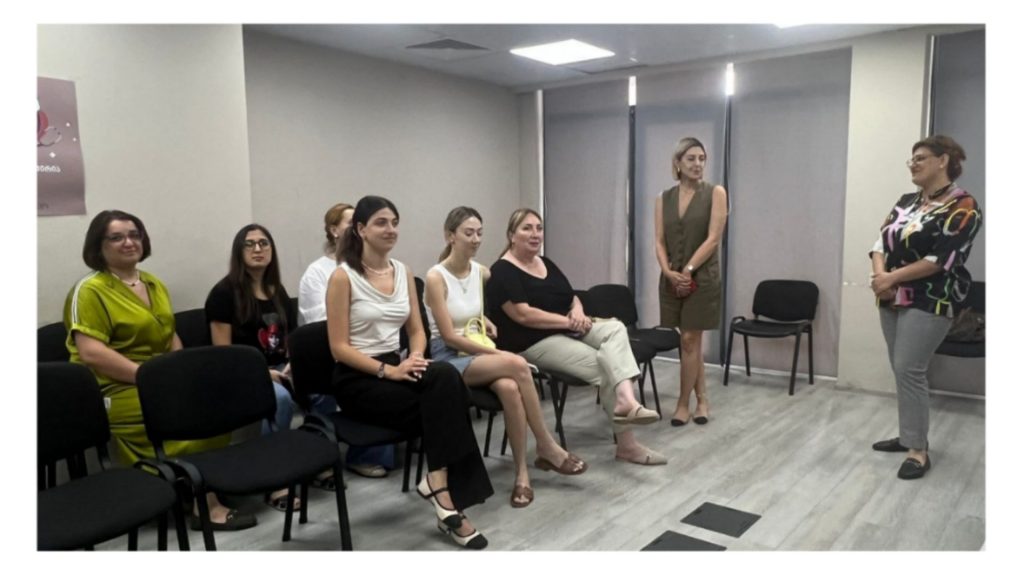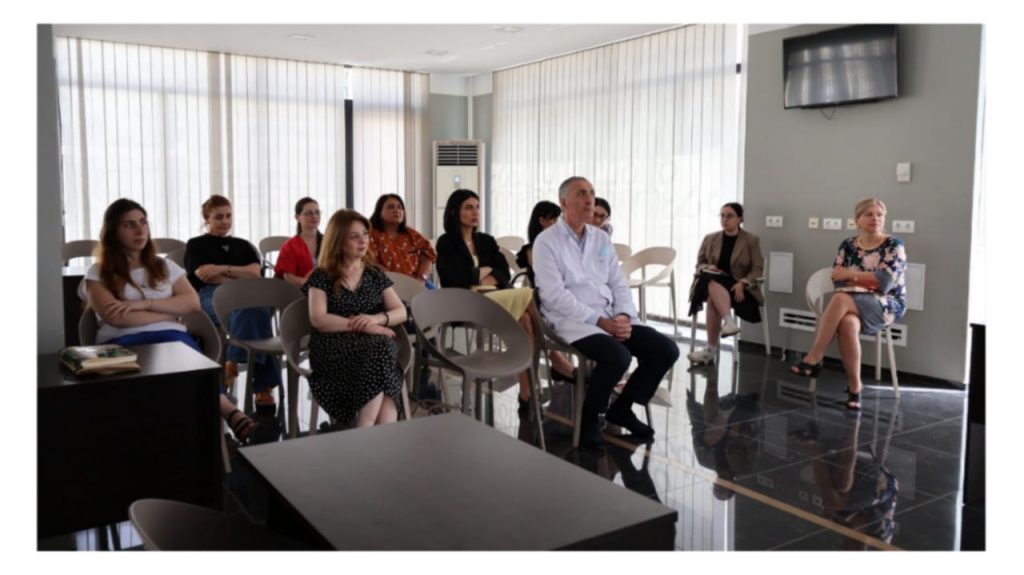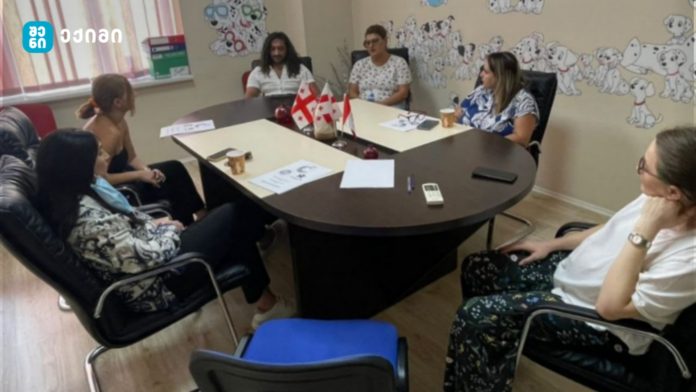8 October 2024, Tbilisi, Georgia
Professor Giorgi Pkhakadze, PHIG Chair
The Georgian healthcare system is undergoing a significant transformation focused on improving the quality and safety of care through patient and family involvement. This transformation is spearheaded by the introduction of the Patient and Family Council (PFC) initiative, officially launched in January 2024 by the Public Health Institute of Georgia (PHIG), which serves as the official representative of Accreditation Canada (AC) in Georgia. This initiative, now implemented in over 20 hospitals in Tbilisi, Kutaisi, and Batumi, represents a major advancement toward creating a more patient-centered healthcare system in Georgia.

PHIG’s Role as the Official Representative of Accreditation Canada
Since 2014, PHIG has worked closely with Accreditation Canada to drive healthcare reforms in Georgia, with a particular focus on improving patient safety and care quality. As the official representative of Accreditation Canada in Georgia, PHIG plays a pivotal role in assisting hospitals to meet international accreditation standards. This collaboration gained even more importance with the recent legal requirement that all healthcare facilities obtain international accreditation by January 1, 2025, to qualify for state funding.
As part of its efforts to enhance patient safety and care quality, PHIG introduced the Patient and Family Council (PFC) model in early 2024. The model offers patients and their families a structured platform to engage in healthcare decision-making, ensuring their voices are heard and their concerns addressed.

The Patient and Family Council Initiative
The PFC initiative follows a patient-centered approach that brings together healthcare providers, patients, and family members to collaborate on improving healthcare quality. The model is based on international best practices, adapted to fit the unique needs of the Georgian healthcare system. Currently implemented in over 20 hospitals in Tbilisi, Kutaisi, and Batumi, the initiative is set to expand to additional healthcare facilities across the country.
The primary objectives of the PFC model include:
1. Enhancing Patient Safety: By involving patients and families in discussions about hospital policies, safety protocols, and practices, the councils play a key role in identifying potential safety risks and proposing solutions.
2. Improving Communication: PFCs foster open dialogue between healthcare providers and patients, helping to build trust and improve transparency in healthcare settings.
3. Advocating for Patient Rights: The councils raise awareness of patient rights and ensure that these rights are respected within healthcare facilities.
4. Providing Feedback for Quality Improvement: PFCs offer valuable insights into patient experiences, which are used to inform hospital policies and drive continuous improvements in care quality.

Creation of the PFC Secretariat
In January 2024, along with launching the PFC initiative, PHIG established a dedicated Patient and Family Council Secretariat. The Secretariat plays a crucial role in ensuring the success of the PFC model across Georgian hospitals by providing ongoing support and coordination.
The key roles and responsibilities of the PFC Secretariat include:
1. Training and Capacity Building: The Secretariat organizes training sessions for patients, family members, and healthcare staff who participate in the councils. These programs cover topics such as patient safety, effective communication, and patient rights. This ensures that all council members have the necessary skills and knowledge to contribute meaningfully to discussions and decisions.
2. Logistical Support: The Secretariat manages all logistical aspects of the councils, such as scheduling meetings, coordinating with hospital management, and ensuring that meeting materials are available. It also handles administrative tasks such as maintaining meeting records and tracking action items.
3. Patient Satisfaction Surveys: The Secretariat is responsible for conducting regular patient satisfaction surveys, essential for gathering feedback from patients and families about their healthcare experiences. These surveys help identify areas for improvement and assess the impact of the PFC initiative on patient outcomes.
4. Media and Public Awareness: The Secretariat collaborates with Sheni, Georgia’s leading independent public health news agency, to promote the work of the PFCs through various media channels. This includes publishing articles, sharing success stories, and educating the public about the importance of patient and family involvement in healthcare.
5. Support for Accreditation: The Secretariat helps hospitals working towards international accreditation by offering guidance on incorporating patient and family involvement into hospital policies and practices. Feedback from PFCs is crucial for hospitals seeking accreditation, as it demonstrates a commitment to patient-centered care.
6. Technical Assistance: The Secretariat provides ongoing technical support to ensure the councils operate effectively. This includes advising hospitals on how to integrate feedback from PFCs into quality improvement processes and resolving any challenges that may arise during the councils’ implementation.
What PFCs Do
The activities of PFCs include:
• Holding monthly meetings with 5–10 patients and family members, 1–2 hospital representatives, and a PHIG Secretariat representative providing logistical support.
• Reviewing patient satisfaction survey reports provided by the PHIG Secretariat, offering comments and recommendations for improvement.
• Providing general feedback to hospital management regarding issues such as services, renovations, and patient comfort.
• Receiving ongoing training from the PHIG Secretariat on patient rights, communication, and safety protocols.
• Sharing recommendations with hospital management, patients, and the public through channels managed by the PHIG Secretariat.
Case Study: Successful Implementation in Tbilisi, Kutaisi, and Batumi Hospitals
The PFC initiative has been successfully implemented in hospitals across Georgia’s three largest cities—Tbilisi, Kutaisi, and Batumi—leading to noticeable improvements in patient satisfaction and care quality.
• Tbilisi: Hospitals such as Hera 2011, Concilium Medulla, Jo Ann University Hospital, Pineo Ecosystems, and NQurion+ have fully integrated the PFC model into their daily operations. By engaging patients and families in care processes, these hospitals have reported enhanced communication, improved adherence to safety protocols, and greater focus on patient needs.
• Kutaisi: Hospital Ksenoni in Georgia’s second-largest city has benefited from the PFC model by bridging the gap between healthcare providers and patients. Councils have played a key role in improving discharge planning and follow-up care, resulting in better continuity of care and higher patient satisfaction.
• Batumi: The largest regional medical network, MedCenter, has embraced the PFC model to build trust between healthcare providers and the local community. PFCs have served as a forum for addressing patient concerns, resulting in more patient-centered care practices and a significant increase in patient satisfaction scores.
Looking Ahead: The Future of Patient and Family Councils in Georgia
The Patient and Family Council initiative, with the support of PHIG, marks a significant milestone in improving healthcare quality and safety in Georgia. By involving patients and families in decision-making processes, the PFC model has the potential to transform Georgia’s healthcare system into a more transparent, responsive, and patient-centered model.
As the initiative expands, PHIG plans to extend the PFC model to more hospitals across Georgia, with a particular focus on rural areas. The lessons learned from the initial roll-out in Tbilisi, Kutaisi, and Batumi will be applied to ensure the model’s success in diverse healthcare settings across the country.
In conclusion, the Patient and Family Council Secretariat plays a critical role in the success of this initiative by providing essential training, logistical support, and technical assistance. With PHIG’s ongoing support, Georgia’s healthcare system is on a path to becoming more patient-centered, with patients and their families playing an active role in care decisions.
#drpkhakadze #sheneikimi





